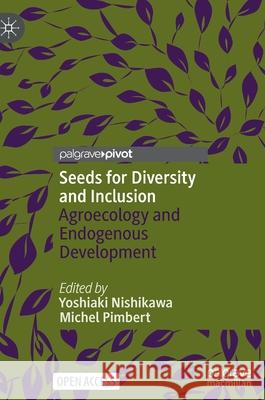Seeds for Diversity and Inclusion: Agroecology and Endogenous Development » książka
topmenu
Seeds for Diversity and Inclusion: Agroecology and Endogenous Development
ISBN-13: 9783030894047 / Angielski / Twarda / 2022 / 220 str.
Kategorie:
Kategorie BISAC:
Wydawca:
Springer Nature Switzerland AG
Język:
Angielski
ISBN-13:
9783030894047
Rok wydania:
2022
Ilość stron:
220
Waga:
0.41 kg
Wymiary:
21.01 x 14.81 x 1.42
Oprawa:
Twarda
Wolumenów:
01
Dodatkowe informacje:
Wydanie ilustrowane











